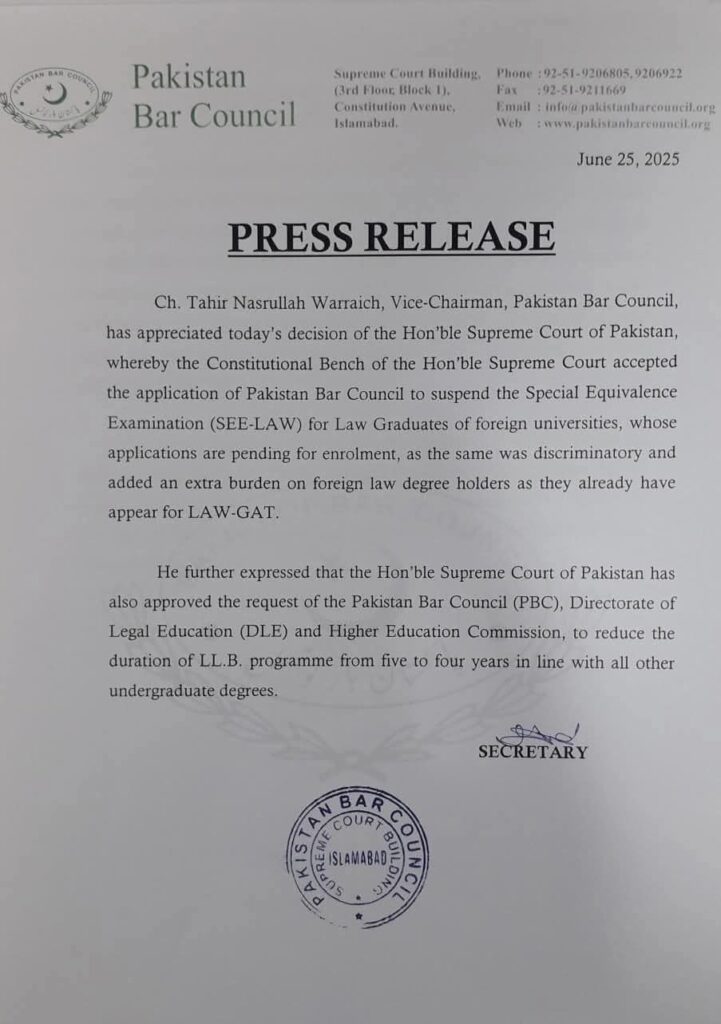Learn how to pass the LAW-GAT in Pakistan with tips, full syllabus, and study strategies. Always prepare from Bare Acts for success.

Table of Contents
Introduction
The Law Graduate Assessment Test (LAW GAT Pakistan 2025) is a compulsory exam for all law graduates in Pakistan who want to enroll as advocates. It is conducted by the Higher Education Commission (HEC) through the National Testing Service (NTS). Without clearing this test, a graduate cannot join any Bar Council in Pakistan. Therefore, smart and well-planned preparation becomes the key to success.
Why LAW GAT Pakistan 2025 Matters
The LAW-GAT is more than just another test. Instead, it serves as the foundation for a professional legal career. Passing the exam proves that a graduate is competent, knowledgeable, and capable of practicing law responsibly. Moreover, the test ensures that only qualified and serious candidates enter the legal profession.
LAW-GAT Syllabus
The LAW-GAT syllabus covers six major areas. Each section tests knowledge of laws, important cases, and professional ethics.
1. Constitutional Law – 20 MCQs
- Constitutional History of Pakistan (Cases):
- Maulvi Tamiz-ud-Din Khan vs. Governor General of Pakistan (PLD 1955 F.C. 240)
- The State vs. Dosso (PLD 1958 S.C. 533)
- Miss Asma Jilani vs. Government of Pakistan (PLD 1972 S.C. 139)
- Begum Nusrat Bhutto vs. Chief of Army Staff (PLD 1977 S.C. 657)
- Muhammad Nawaz Sharif vs. President of Pakistan (PLD 1993 S.C. 473)
- Al-Jehad Trust vs. Federation of Pakistan (Judges Case) (PLD 1996 S.C. 324)
- Zafar Ali Shah vs. General Pervez Musharraf (PLD 2000 S.C. 869)
- Khan Asfandyar Wali vs. Federation of Pakistan (PLD 2001 S.C. 607)
- Constitution of Pakistan, 1973:
- Fundamental Rights (Preamble to Article 40)
- Parliament (Articles 50–89)
- The Judicature (Articles 175–212)
- International Law:
- United Nations Charter
- International Court of Justice
2. Jurisprudence – 10 MCQs
- Jurisprudence by Sir John Salmond
- Islamic Jurisprudence by Prof. Imran Ahsan Khan Nyazee
3. Civil Procedure Code (CPC) – 20 MCQs
- Selected sections: Preamble, 12, 15–20, 47, 75, 96, 104, 115, 151
- Orders 1, 6–9, 39, 41, 43
4. Criminal Law – 20 MCQs
- Pakistan Penal Code (PPC):
- Chapter 2 (General Explanations)
- Chapter 4 (General Exceptions)
- Chapter 16 & 16-A (Offences Affecting the Human Body / Wrongful Restraint & Confinement)
- Chapter 17 (Offences against Property)
- Criminal Procedure Code (CrPC):
- Chapter 1, 5, 7, 8, 10, 11, 14, 16, 17, 31, 39
5. Law of Evidence – 20 MCQs
- Qanun-e-Shahadat Order, 1984
6. Professional Ethics – 10 MCQs
- Canons of Professional Conduct and Etiquette of Advocates
- Chapter 12 (Rule 134–175B), Pakistan Legal Practitioners & Bar Councils Rules, 1976
👉 Pro Tip: Always study directly from Bare Acts. The exam uses the same legal language, which is often missing in summaries. Bare Acts keep your answers accurate.
How to Prepare for LAW GAT Pakistan 2025 (Step-by-Step)
1. Understand the Exam Format
The LAW-GAT consists of multiple-choice questions. Consequently, practicing MCQs regularly helps you adapt to the test style.
2. Build a Study Plan
Divide your syllabus into small, manageable parts. For example, dedicate two weeks to Constitutional Law, one week to CPC, and another to Criminal Law. This balanced schedule ensures that you cover every subject.
3. Prioritize Bare Acts
Begin your preparation with Bare Acts. In addition, memorize key sections and apply them to practical examples.
4. Solve Past Papers
Past papers reveal recurring topics and familiar question styles. They also help you manage time effectively.
5. Revise Consistently
Daily short revisions keep the law fresh in your mind. On the other hand, last-minute cramming usually creates stress.
6. Join Study Groups
Group discussions strengthen your understanding and keep you motivated. Moreover, they expose you to different interpretations of the same law.
SEE-LAW Test Suspended – Big News for Foreign Graduates
📢 Breaking News (June 25, 2025): The Supreme Court of Pakistan has suspended the SEE-LAW exam for foreign law graduates.
- The Pakistan Bar Council (PBC) argued that SEE-LAW was unfair.
- The Supreme Court accepted this request and suspended the exam.
- As a result, foreign graduates can now focus directly on the LAW-GAT.
💡 More Relief for Students: The LL.B. program has been reduced from five years to four years, bringing it in line with other undergraduate degrees.
👏 This change shows that when students raise their voices, meaningful reforms can follow.
Press Release for Suspension of SEE LAW (Dated: June 25, 2025)

Final Tips for Success in LAW GAT Pakistan 2025
To succeed in the LAW-GAT:
- Study Bare Acts first.
- Practice MCQs daily.
- Revise regularly and stay consistent.
- Follow official announcements from HEC and PBC.
Passing this test opens the door to Bar Council enrollment and a rewarding legal career.
